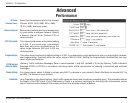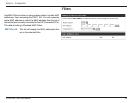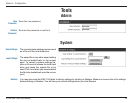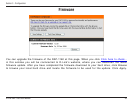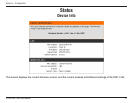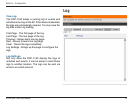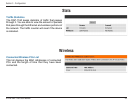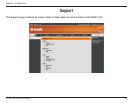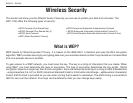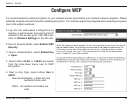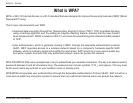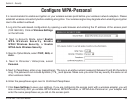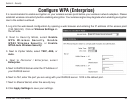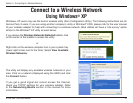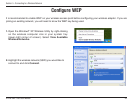
35D-Link DAP-1160 User Manual
Section 4 - Security
Wireless Security
This section will show you the different levels of security you can use to protect your data from intruders. The
DAP-1160 offers the following types of security:
• WPA-Personal (Pre-Shared Key) • WPA-Enterprise (Extensible Authentication Protocol)
• WPA2-Personal (Pre-Shared Key 2) • WPA2-Enterprise (Extensible Authentication Protocol 2)
• WPA2-Auto-Personal
• WPA2-Auto-Enterprise (Extensible Authentication Protocol 2 Auto)
• WEP (Wired Equivalent Privacy)
What is WEP?
WEP stands for Wired Equivalent Privacy. It is based on the IEEE 802.11 standard and uses the RC4 encryption
algorithm. WEP provides security by encrypting data over your wireless network so that it is protected as it is transmitted
from one wireless device to another.
To gain access to a WEP network, you must know the key. The key is a string of characters that you create. When
using WEP, you must determine the level of encryption. The type of encryption determines the key length. 128-bit
encryption requires a longer key than 64-bit encryption. Keys are dened by entering in a string in HEX (hexadecimal
- using characters 0-9, A-F) or ASCII (American Standard Code for Information Interchange – alphanumeric characters)
format. ASCII format is provided so you can enter a string that is easier to remember. The ASCII string is converted to
HEX for use over the network. Four keys can be dened so that you can change keys easily.



